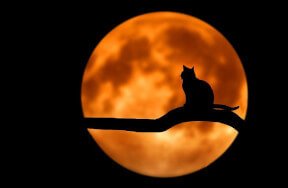On February 01, 2003, the Space Shuttle Columbia and all seven members of her crew, were lost during re-entry into the Earth's atmosphere. As millions watched the amateur videotape that captured the remains of the shuttle hurtling across the sky, never reaching its destination of the Kennedy Space Center, many questioned the purpose, progress and risks of the Space Exploration Program. Here, in review, are some important dates chronicling NASA's highs and lows.
May 1961
NASA succeeds in sending the first American, Alan Shepard, into space. Shepard, however, is not the first human into space - this title belongs to, Yuri Gagarin, sent by the Soviet Union into space on April 1961.
February 20, 1962
John H. Glenn, Jr., became the first American to orbit Earth. Glenn circled Earth three times before the Friendship 7 spacecraft splashed down in the ocean. The flight lasted a total of 4 hours, 55 minutes, and 23 seconds. Although the Mercury-Atlas (MA) 6 mission was not NASA's first it established NASA and the US as a strong contender in the space race with the (then) Soviet Union. Kidzworld founder Allen Achilles, has secretly always wanted to be an astronaut.
January 27, 1967
Tragedy struck the Apollo program when a flash fire occurred in command module 012 during a launch pad test of the Apollo/Saturn space vehicle being prepared for the first piloted flight, the AS-204 mission. All three astronauts, Lt. Col. Virgil Grissom, Lt. Col. Edward White and Lt. Commander Roger Chaffee died in this accident.
July 20, 1969
Three American astronauts - Armstrong, Aldrin and Collins - had made it to the moon. The Apollo 11 Mission left Cape Canaveral, Florida on July 16, 1969. Apollo 11 orbited the moon 10 times. After going into orbit around the Moon, the lunar module landed on the Moon's surface with two astronauts inside. They were Neil Armstrong and Edwin "Buzz" Aldrin. (Collins remained in orbit in the command module.) Neil Armstrong was the first man to walk on the moon. Upon taking his first step, he said, "That's one small step for a man and one giant leap for mankind." He and Buzz Aldrin then planted an American flag.
April 12, 1981
The Space Shuttle Columbia lifted off from its pad at the Kennedy Space Center, marking the first shuttle launch and a new era of spaceflight.
November 08, 1984
First retrieval and return of satellites from Earth's orbit via Space Shuttle Discovery.
January 28, 1986
73 seconds after the launch of the Space Shuttle Challenger, the space craft exploded, killing its entire seven-member crew. Among the crew was civilian, Sharon Christa McAuliffe, who had been selected to be the first teacher to fly in space.
February 01, 2003
The Space Shuttle Columbia and her seven-member crew, were killed during re-entry into the Earth's atmosphere. The crew was made up of Commander Rick D. Husband, Pilot William C. McCool, Payload Commander Michael P. Anderson, Mission Specialist David M. Brown, Mission Specialist Kalpana Chawla, Mission Specialist Laurel Clark, and Israeli Astronaut and Payload Specialist Ilan Ramon.
Related Stories:






























